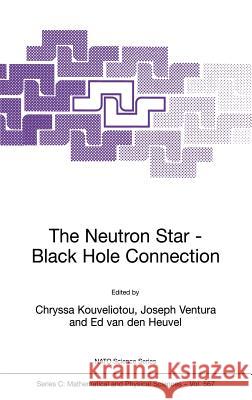The Neutron Star--Black Hole Connection » książka
The Neutron Star--Black Hole Connection
ISBN-13: 9781402002045 / Angielski / Twarda / 2001 / 522 str.
Set against the background of beautiful Mirabello Bay, astronomers from fourteen countries met at Elounda, Crete in the period 7-18June, 1999 to debate some of the most compelling issues of present day astrophysics. Neutron stars and black holes have been at the forefront of astrophysics for over thirty years. As recently as ten years ago it was still being debated whether galactic stellar-mass black holes existed or not.It is now generally accepted that many (possibly a thousand) stellar-mass black holes - most of them still undetected - lie in low mass X-ray binary (LMXB) systems; a few of them are detected every year as X-ray or gamma-ray transients. These objects are more massive than 3 M, the maximum possible mass 0 for a neutron star, and show none of the tell-tale signs of neutron stars, such as X-ray bursts and X-ray pulsations. It is quite remarkable that all LMXBs display a similar temporal and spectral behaviour, 'independently of whether the accreting compact object is a neutron star or a black hole. A broad debate on these similarities and differences naturally constituted one of the main focal points during the Elounda meeting. Evidence on these aspects has been forthcoming from the Compton Gamma-ray Observatory (CGRO), the ROSAT and ASCA satellites, the Rossi X-Ray Timing Explorer (RXTE), and from the Beppo- SAX Observatory.











